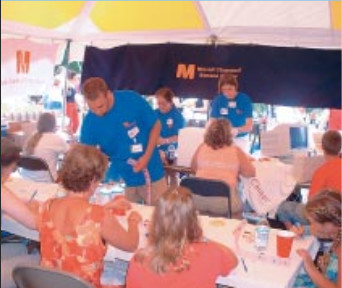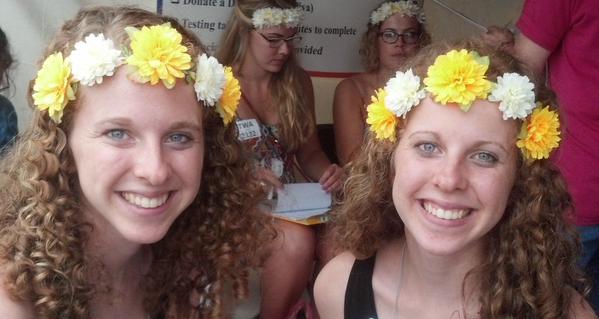Monell scientists first started attending the Twins Days Festival in 2002, joining a number of other institutions in the Research Plaza just outside the Festival grounds. In 2003, we wrote about the Twinsburg trips for the Monell Newsletter (you can read the story here: “Twin Spin“).

This year, at the 40th anniversary of the Twins Days Festival, the Monell team will be rubbing shoulders with researchers from John Hopkins University, Syracuse University, Procter & Gamble Beauty, and more.
Why are people so eager to study twins?
Twins provide a natural experiment for scientists studying human genetics. Identical twins share 100% of their genes while fraternal twins, on average, share about 50% of their genes.
Knowing this, scientists can compare data about the behaviors and perceptions of twin pairs to determine how strongly a person’s genetics (“nature”) influence a given trait versus environmental factors (“nurture”).

For example, this year, in addition to the taste test, we will be asking whether twins are similar in their susceptibility to acquired anosmia – loss of the sense of smell. If so, there likely is a genetic component to be identified.
With regard to taste, in this recently published twin study, Monell researchers and collaborators in Australia gave twins different sweet solutions, and asked them to rate how strongly sweet they thought the samples were. The results indicated that genetic factors accounted for about 30% of person-to-person variance in sweet taste perception.
In contrast, an earlier study from Monell reported that genes account for over 50% of individual variance in sensitivity to sour taste.
Why is this important? The answers range from the ability to provide personalized nutrition recommendations to helping scientists identify the receptors that underlie taste.
Which keeps Monell teams traveling to Twinsburg year after year, collecting data that may one day help us better understand why we are the way we are.
